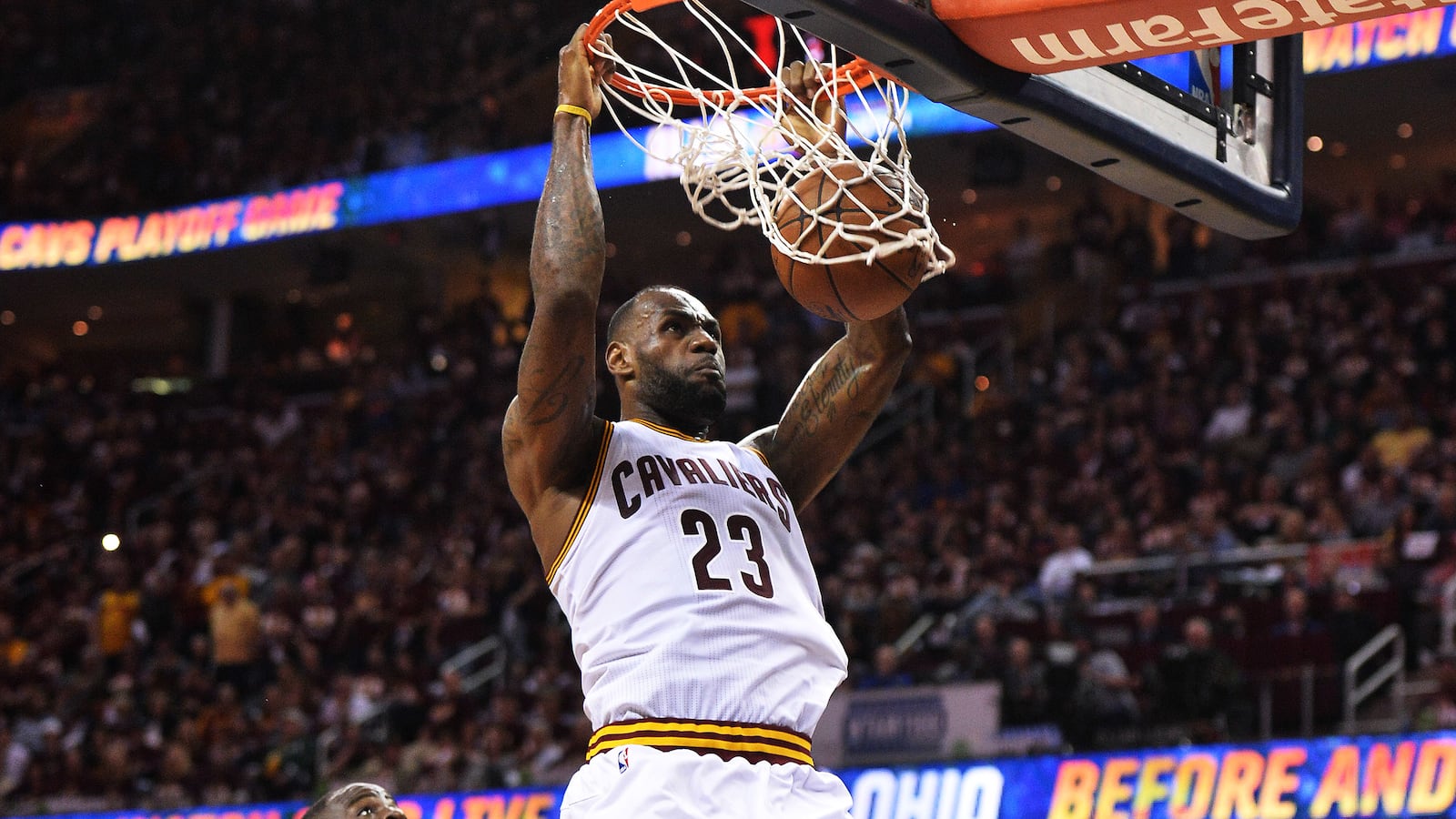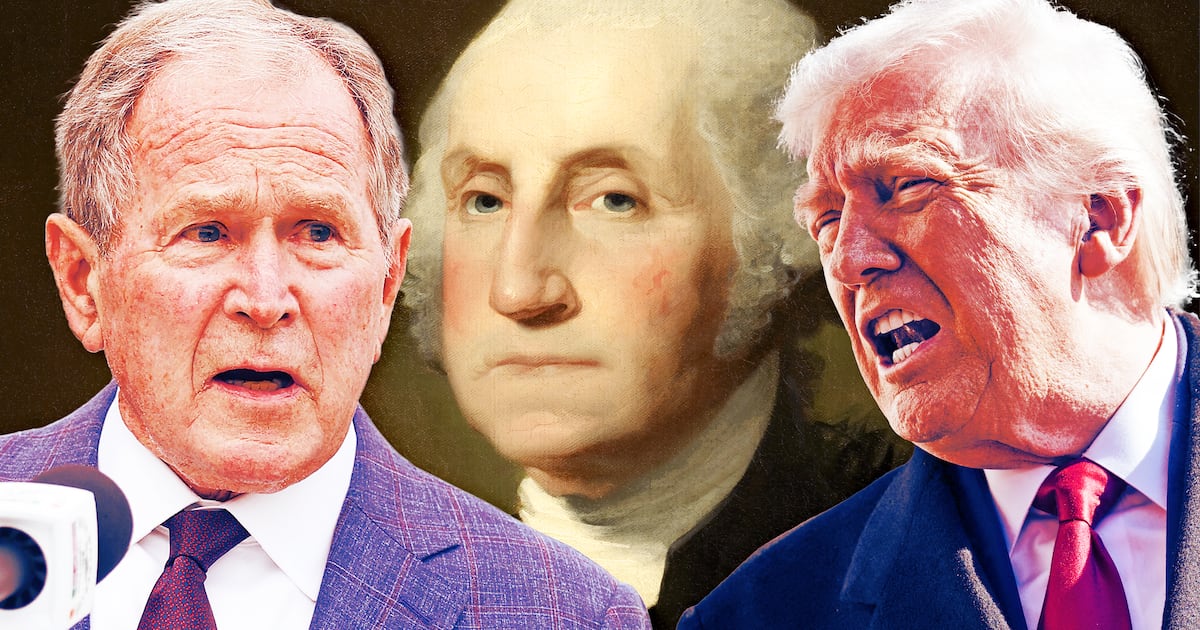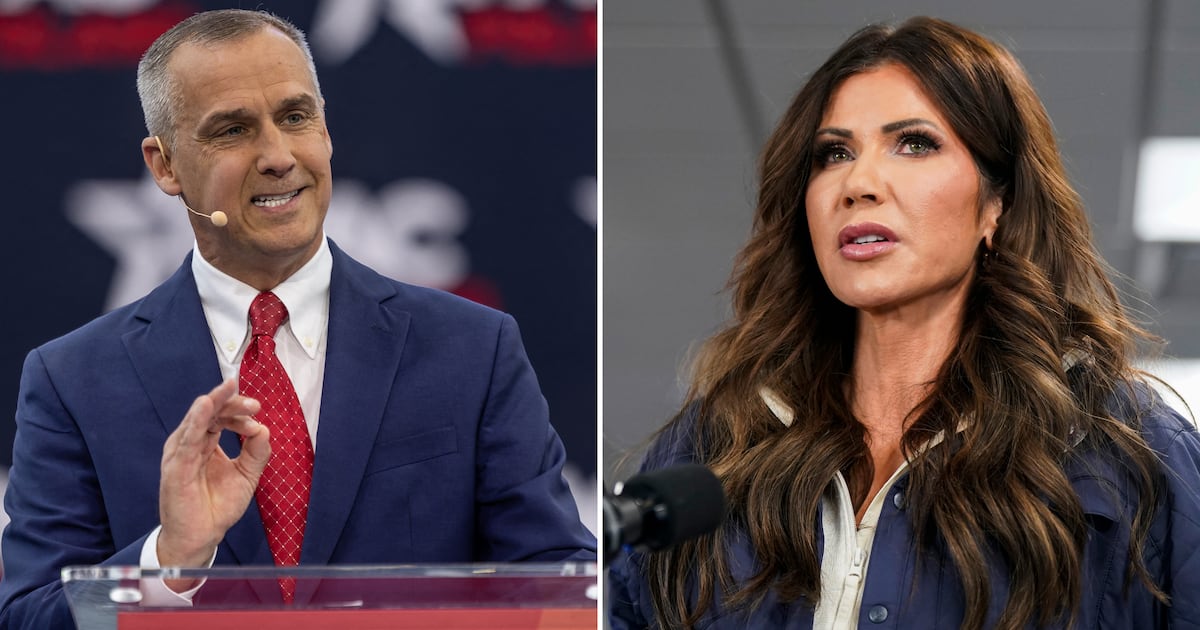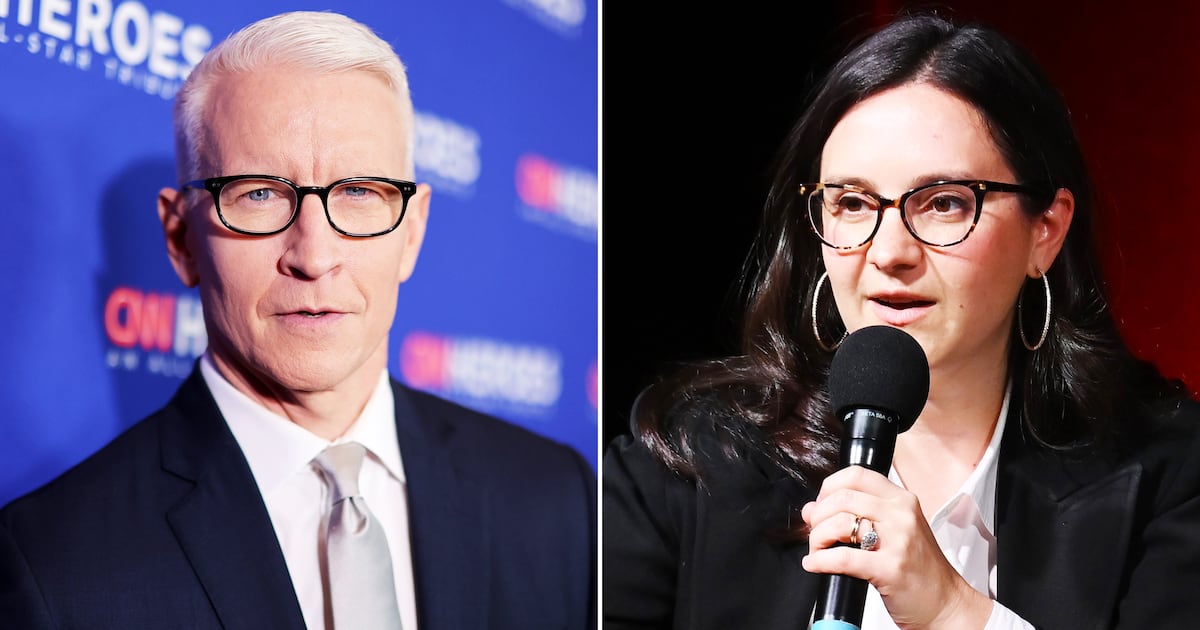It’s going to come lurching to the forefront because it has to, because the great howling and bawling, ever-hungry maw that is our national sports discourse will demand that it’s asked, if never truly answered: What will a defeat in the 2016 NBA Finals—regardless of whether he’s able to extend the series beyond game five tonight—mean for LeBron James’s legacy?
Yes, a second straight title for the Golden State Warriors seems like a far more likely outcome than not, Draymond Green’s game five suspension notwithstanding. But the basketball punditocracy has already chosen to embrace the hell out of this particular debate, revving up sandblasters to eradicate any hint of James’s grinning mug from their own personal NBA Mount Rushmores. Here’s Stephen A. Smith on ESPN’s First Take before the Finals began, hammering away that it would be “devastating” for James should he lose to a historically great team.
If the cadence, tone, and text of Smith’s spiel sounds familiar, it’s more or less the same back-and-forth he had with his fellow Loud Opinion-Haver, Skip Bayless, a week later, when they fretted that another Finals loss could permanently sully James’s resume. His capital-L Legacy was also the topic du jour for the pair of hosts before game seven in 2013, and at around this time last year after he and the Cavaliers fell to an almost-as-otherworldly Warriors squad, never mind the fact that James was undoubtedly great, lashing a bungled and botched collection of spare parts that comprised the rest of the roster to his back, amassing 35.8 points, 13.3 rebounds, and 8.8 assists while logging a whopping 45.7 minutes per game.
Not to single out Bayless and Smith as the only tooters of this groaning horn, mind you. A quick Googling of “LeBron James + Legacy” points to an entire cottage industry of deeply serious dudes looking to place their stamp on the entirety of James’s career, even though he’s far from ready to hang up his Nikes.
In fairness, a great many articles and columns addressing James’s career accomplishments take into context both the caliber of his teammates, the strength of his opponents, and the many causal factors that have kept James from collecting enough ringzzz to adorn every finger during his current run of six straight trips to the Finals. Nuance and subtlety exist, is what I’m saying, if far less noisily so.
But for a certain segment of the population, both in the press and scattered amongst the basketball-loving public, LeBron James can’t win, even if the attendant white noise prompted no less than the former Los Angeles Lakers great and current Warriors exec Jerry West to label all of this “grossly unfair” to James. That’s definitely the case for those who insist that James’s career can only be appreciated and understood in comparison to the ultimate hoops measuring stick: Michael Jordan.
Leave it to apex troll Phil Jackson to just throw it out there, declaring that the only way the Cavs could claw back from an 0-2 hole was for James to be something that he’s not, to “pulling the cape of Superman” and transforming into Michael Jordan, specifically pointing to MJ’s performance in the 1993 Eastern Conference Finals against the Knicks. (The Zen Master seems to have forgotten that though his Chicago Bulls prevailed, His Airness shot a robust 3-18 from the field in the pivotal third game.)
In response, James stated the obvious.
“I think for me to go out and be who I am and play as true to the game and as hard as I can and try to lead this team, that’s who I am. Not anybody else,” he said. “I’m not Michael. I’m not Ali. I’m not nobody else that’s done so many great things for sport. I am who I am, and if I’m able to go out and put together a game like that, it wasn’t because I was possessed. It’s because I worked on my craft all season long and that’s the result of it.
“Phil’s a great coach. Mike’s a great player,” he added. “But I am who I am.”
Somehow, that self-evident statement was seen as a sign of weakness, and all of the flabby keening about “will” and full-throated testaments to Jordan’s greatness—which, to be clear, isn’t in question at all—came burbling back to the surface.

That kind of defiant, angry nostalgia is telling, David Crockett, an associate professor of marketing at the University of South Carolina whose research has been focused on the sociological aspects of consumer behavior, said in an email, and indicative of a (largely) male fan demographic marked by a “near-obsessive need to sort and rank each other on knowledge of trivia, commitment to team, taste in apparel,” as compensation for deeply-buried, gnawing feelings of inadequacy.
“Michael Jordan’s (pre-Wizards) body virtually defined masculinity for a generation of males,” Crockett said. “The way that Jordan punished teams allowed us to see a level of dominance rarely attained in real life... [Jordan’s] kind of dominance is the ‘great white whale’ of a particular kind of masculine identity project. For a generation of males who came of age during the ’80s and ’90s, Jordan is iconic (not just popular) because he actually embodied a kind of yearned-for hegemony.”
Reached by email, Yago Colás, a professor of Comparative Literature at the University of Michigan and the author of Ball Don’t Lie! Myth, Genealogy, and Invention in the Cultures of Basketball, agreed.
“Of course, LeBron is not and could never really be Jordan,” he wrote. “But I also think we really don’t want anybody to be another Jordan. We just want to stay arrested in that late ‘90s feeling of triumph and so we really just want Jordan. We want history to stop. Obviously, LeBron will forever disappoint that desire and we will never forgive him for that.”
If you want to get a handle on how deluded and strident that demographic is, Public Policy Polling found that 34 percent of fans think Jordan could beat James in a game of one-on-one right now. That is to say, they think 53-year-old Mike would still win, with the largest block of support (48 percent) coming from those aged 30-45.
Paradoxically, all of this low-bore grumping is directed at a player that has attained as much real power and decision-making authority as any team sport athlete in history, even if his game doesn’t necessarily lend itself to a Jordan-esque brand of dominance. And the best way to rein in that power, to reclaim historical—if not actual—control is to perpetually fuss and harrumph about legacy.

Granted, it’s not that hard to pick apart the results of LeBron’s recent stint as the Cavaliers’ shadow general manager, but Colas added that James “Seems to me to have a stake in doing something bigger than basketball,” he wrote, noting both James’s political activism and scholarship program in his native Akron.
“He definitely projects an image that he’s here to head an effort to get something big accomplished,” said Colas. “But I also think that sports culture by and large is ill-equipped to properly understand that projection or the larger effort that it symbolizes.”
And in the end, all of this legacy talk is just so exhausting, the vehement insistence that James is a top 10 or 15 all-time great as opposed to cracking the top five, the endless counting of championships or even granular parsing of his stats—an argument for which there is no answer, but rather leads to little more than grim retrenchment with opposing “sides” lobbing vitriol and red-hot takes about whether Superman could win a race against the Flash.
Meanwhile, even if James has lost a half step or two, he’s still capable of staggering feats of athleticism, power, and grace, even if he might not have enough left in the tank to overcome a throttling Golden State defense. Why delve into a non-debate or mercilessly cling to the past, when you could just enjoy moments like this?






